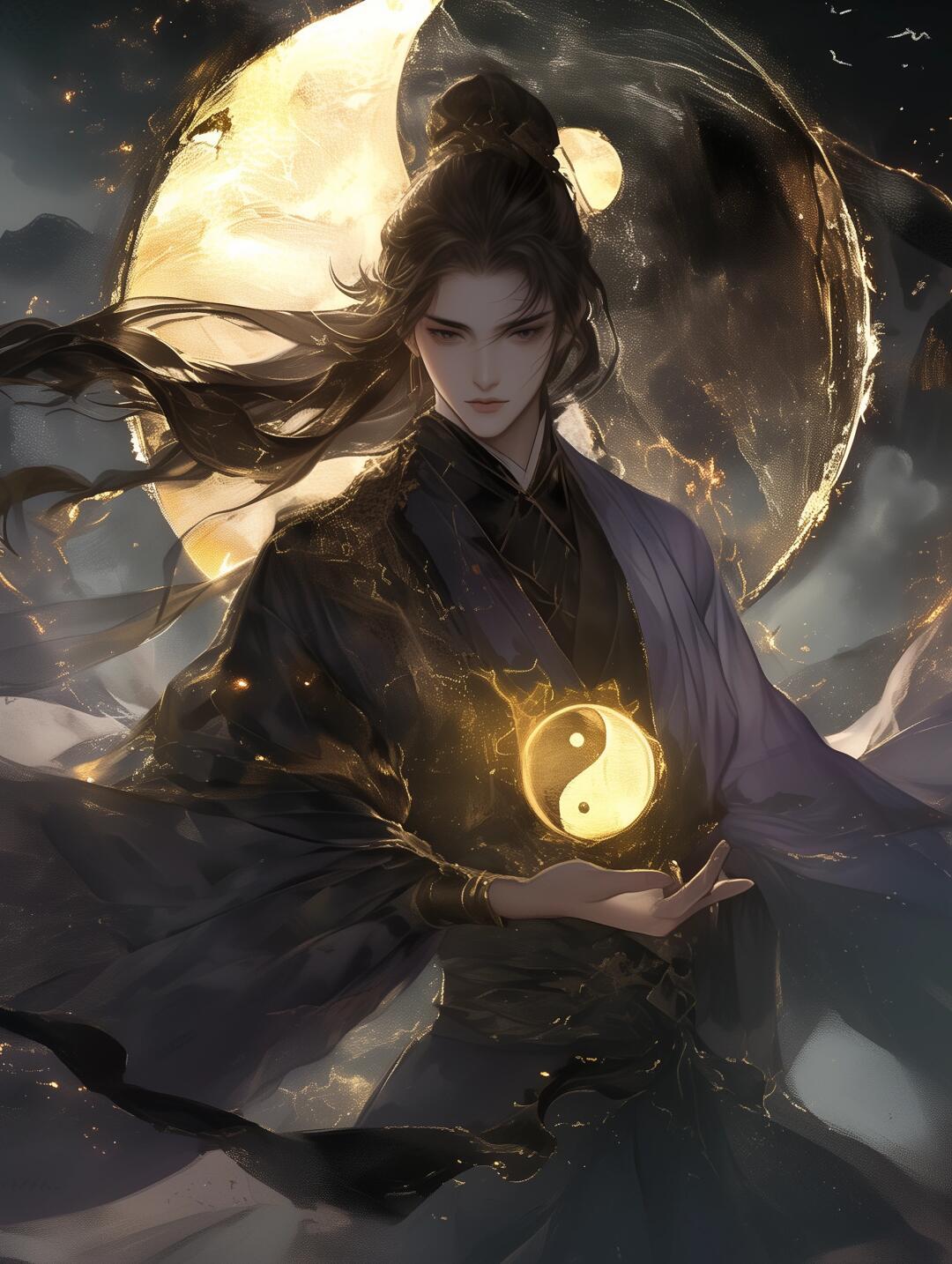In the long river of history, Taoist thought is like a bright pearl, emitting a unique wisdom light. Among them, the debate between Zhuangzi and Huizi has left profound thoughts for future generations. Their story not only shows the ideological collision between two wise men but also reflects Taoism's profound insight into life, aspiration, and nature.
The story takes place in a turbulent era. Huizi, Zhuangzi's friend, becomes the prime minister of King Hui of Liang. This should have been a matter worthy of celebration, but it became stormy because of a rumor. Someone spread a rumor that Zhuangzi was going to replace Huizi's position as prime minister, which plunged Huizi into extreme panic. In the face of the temptation of power and status, Huizi's heart is filled with uneasiness and doubts.
And Zhuangzi, the representative figure of Taoism, takes the initiative to find Huizi with a transcendent attitude. He responds to Huizi's fear with a vivid metaphor: "There is a kind of bird in the south. It flies from the South Sea to the North Sea. It does not perch except on the phoenix tree, does not eat except the fruit of bamboo, and does not drink except sweet spring water. At this time, an owl has picked up a stinky mouse. When it sees this bird fly by, it is terrified that it will snatch its food. Now, you are that owl."
This metaphor is concise and profound. It vividly shows the huge difference between Zhuangzi and Huizi. Zhuangzi compares himself to a bird, expressing his pursuit of noble quality and pure realm. This kind of bird only perches on the phoenix tree, only eats the fruit of bamboo, and only drinks sweet spring water. It represents a spirit of adhering to one's nature and not being swayed by the outside world. Huizi is compared to an owl because after hearing the rumor, he immediately falls into the worry about power and status, just like an owl worrying that its stinky mouse will be taken away.
Zhuangzi's metaphor is not only a criticism of Huizi but also a warning to the world. In real life, we are often influenced by the opinions and environment of the outside world and forget our original intention and nature. We may resort to all means to pursue power, wealth, and reputation, and even sacrifice our principles and dignity. However, Zhuangzi tells us that true happiness and satisfaction do not lie in external material enjoyment but in inner peace and adhering to one's nature.
Zhuangzi's aspiration is to pursue a transcendent freedom and carefree life. He believes that the meaning of life does not lie in meritorious service, fame, and fortune but in conforming to nature and returning to authenticity. He advocates "governing by doing nothing," that is, not deliberately pursuing anything but letting things develop naturally. This thought is fully reflected in his debate with Huizi. Zhuangzi doesn't care about the position of prime minister because he knows that power and status will only bring more troubles and restraints. He would rather live a free life and integrate with nature than be burdened by worldly affairs.
In sharp contrast to Zhuangzi is Huizi. As the prime minister of King Hui of Liang, Huizi is at the center of power. His thoughts and actions are more influenced by realistic interests. He is worried that Zhuangzi will replace his position because he regards the position of prime minister as a precious symbol of wealth and power. His fear stems from his attachment to power and the fear of loss. However, Huizi's mentality also reflects the weakness of most people. We often care too much about the opinions and evaluations of others, are afraid of losing what we already have, and thus lose ourselves and fall into endless anxiety and pain.
The debate between Zhuangzi and Huizi makes us deeply realize the importance of adhering to one's nature. In this complex world, we are easily confused by the temptations of the outside world and forget our original intention and mission. We may change ourselves to cater to the expectations of others or give up our principles for short-term interests. But doing so will only make us lose our true selves and become more and more confused and painful.
Adhering to one's nature means maintaining inner purity and firmness. We should be like the bird in Zhuangzi's description, have our own principles and pursuits, and not be swayed by the temptations of the outside world. We should learn to listen to the voice of our hearts, find what we truly love, and work hard for it. Only in this way can we find our own place in this world and realize our life value.
Adhering to one's nature also requires us to have the courage to face external pressure and challenges. In real life, we may encounter various difficulties and setbacks, and there may be people who do not understand us and oppose us. But we cannot give up our beliefs and pursuits because of these. We should face the doubts and criticisms of the outside world with a transcendent attitude like Zhuangzi and firmly follow our own path.
The debate between Zhuangzi and Huizi also makes us think about the true meaning of life. Life is not just about pursuing material wealth and power status. More importantly, it is about pursuing inner happiness and satisfaction. We should learn to let go of our attachment to external things and return to inner peace and authenticity. Only in this way can we truly enjoy the beauty of life and experience the true meaning of life.
In today's society, the story of the debate between Zhuangzi and Huizi still has profound practical significance. We live in an era full of competition and pressure. People often overly pursue material wealth and success while ignoring inner needs. We should draw wisdom from Zhuangzi's thought, learn to adhere to our nature, and not be swayed by the temptations of the outside world. We should cherish our inner world, maintain a pure heart, and face the challenges in life with a positive attitude.
At the same time, we should also respect everyone's choices and pursuits. Everyone has their own life path and values. We cannot measure others by our own standards. Just like Zhuangzi and Huizi, although they have different aspirations and pursuits, they should all be respected and understood. Only in an inclusive and diverse society can we jointly create a better world.
In conclusion, the debate between Zhuangzi and Huizi is a classic story in Taoist thought. It deeply reflects Zhuangzi's spirit of adhering to his aspiration and nature and not being swayed by the opinions of others and the external environment. This story not only provides us with a perspective to think about life but also provides us with a wisdom of life. In today's society, we should learn from Zhuangzi's spirit, adhere to our nature, pursue inner happiness and satisfaction, and face the challenges in life with a positive attitude. Only in this way can we find our own piece of pure land in this complex world and realize our life value.



